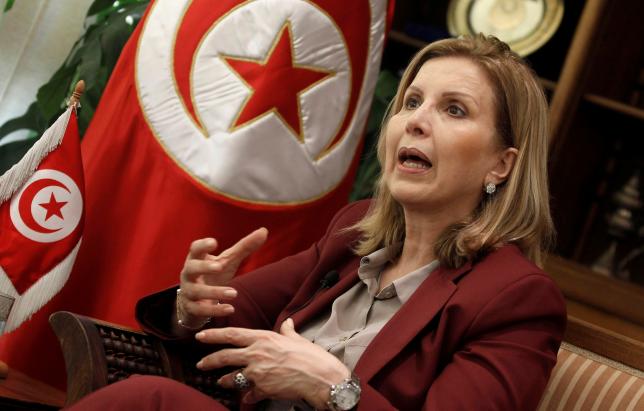
Salma Elloumi Rekik told Reuters she was urging European leaders to support Tunisia’s young democracy by lifting warnings against travel to the North African state issued after a gunman attacked a Tunisian resort hotel last June.
She said there were positive signs that airline bookings were beginning to recover, and Tunisia was hoping to lure additional travelers with new holiday tours such as desert safaris and cosmetic medical tourism.
Tourism accounts for 8 percent of gross domestic product in Tunisia and is a key source of foreign currency and jobs for Tunisians, who overthrew Zine El Abidine Ben Ali in a 2011 uprising.
Last year tourist arrivals fell to 5.5 million, the lowest level in decades, after several European tour companies and cruise operators suspended operations in the wake of the Sousse attack. Tourism revenues fell 35 percent to $1.5 billion.
Thirty-eight tourists, mostly British, were killed by an Islamist gunman who opened fire at the hotel in Sousse, three months after 21 tourists were killed by gunmen attacking the Bardo National Museum in the capital Tunis.
The Islamic State militant group claimed both attacks.
The fall in tourism revenues contributed to a slowdown in economic growth to 0.8 percent from 2.3 percent a year earlier, according to official data.
Elloumi Rekik said despite difficulties, which continued at start of this year, there were indications that 2016 visitor figures would be not lower than last year.
Flight reservations were up, some international tour companies were coming back to Tunisia and new tourist markets were growing, she said.
“We aim to attract at least 5.5 million tourists like last year … There are some early bookings and indications that last-minute bookings will rise with the continued stability of the security situation.”
But more than 100 hotels have closed since the Sousse attack, she said, while some foreign tour groups have canceled some routes, cruises and packages.
The government said last year 1,000 more armed tourism police will patrol hotels and tourism sites. A state of emergency declared by President Beji Caid Essebsi has been extended, giving the executive and military more emergency powers to tackle militant threats.
OPEN SKY DEAL
Tunisia’s Central Bank said this month tourism revenue in first two months of 2016 fell to 182 million dinars ($90 million), 54 percent down on the same period last year.
But Elloumi Rekik said Tunisia is diversifying by promoting cultural tourism, Sahara safari trips and medical tourism packages — giving European patients access to less costly therapeutic and cosmetic treatments in Tunisia.
She said the government also expects Tunisia will enter an Open Sky aviation liberalization agreement with Europe by the end of 2016 or by January 2017 at the latest, which would help bring more travelers and tourists to Tunisia from next year.
Tunisia began negotiations after the 2011 revolution with the European Union on the open skies agreement, but concerns about the competitive impact on Tunisia’s national carrier TUNISAIR caused delays.
“Negotiations have reached an important step,” she said.
The minister said Tunisia had also started work to facilitate easier visa procedures for several countries, including launching in a few months an electronic visa to help cut down on bureaucracy.
REUTERS

Leave a Reply
You must be logged in to post a comment.